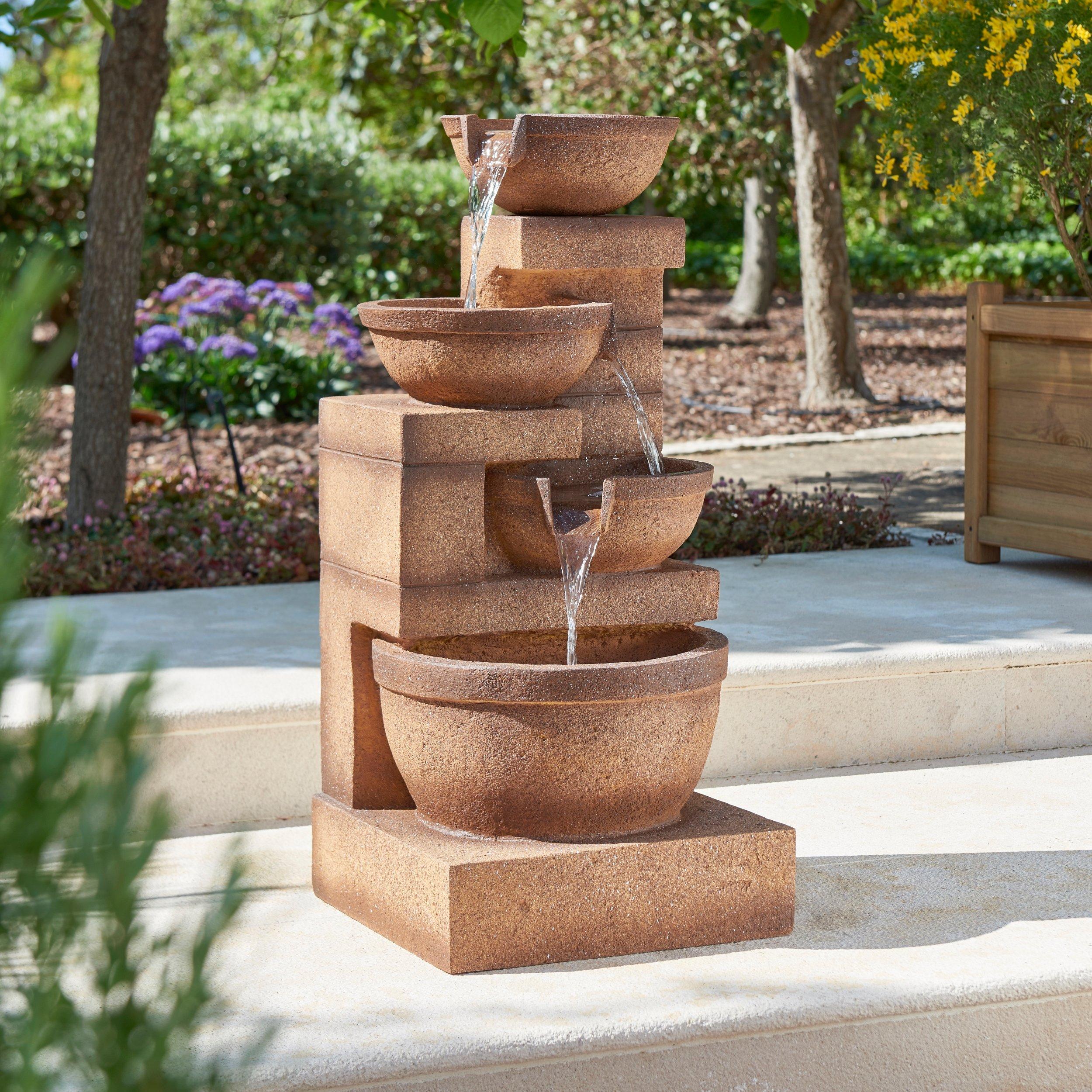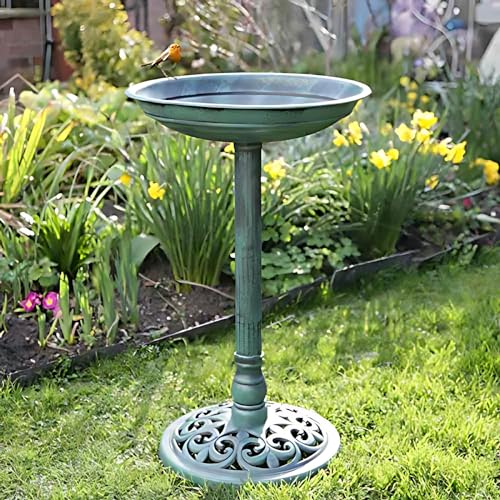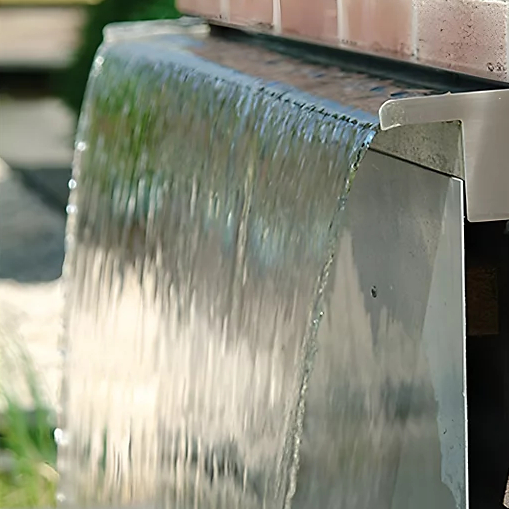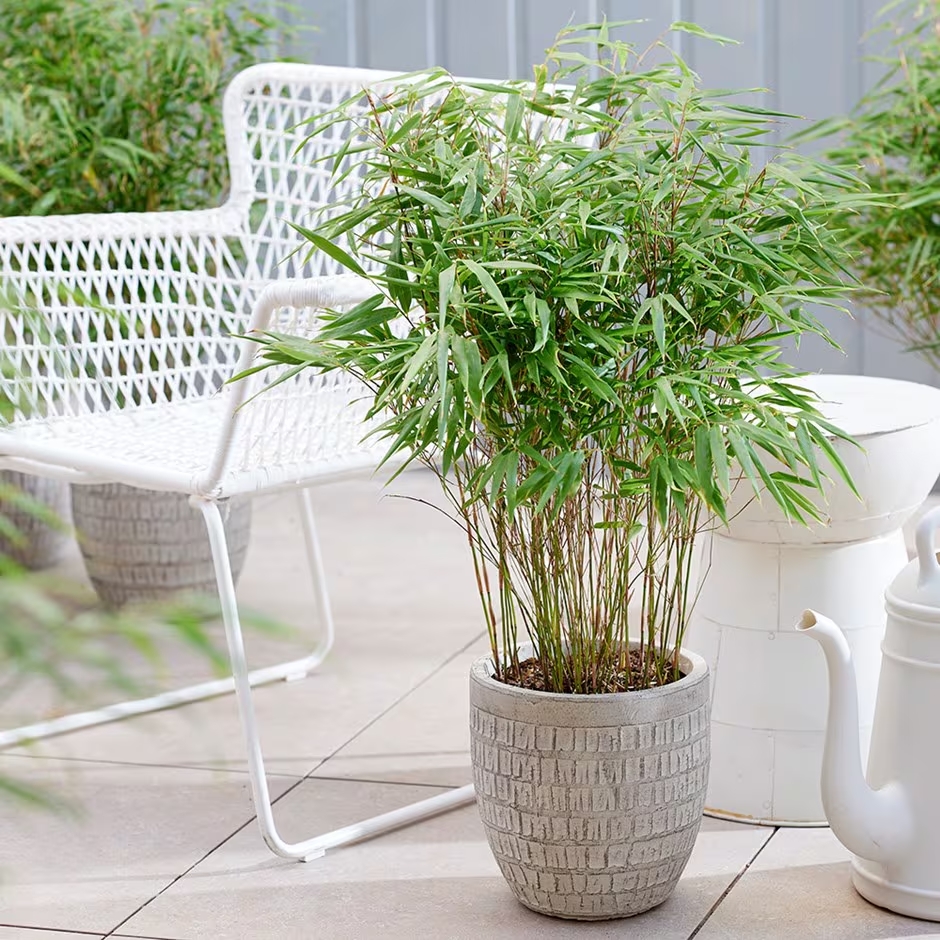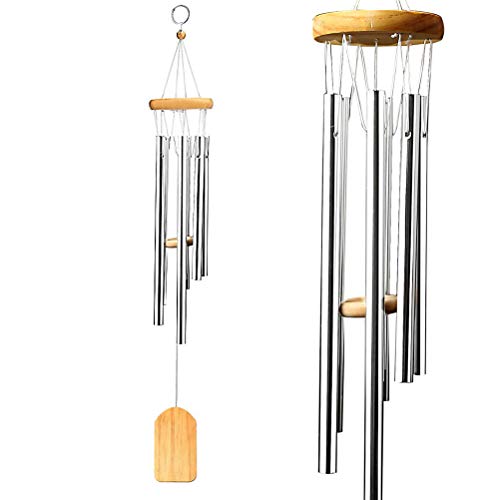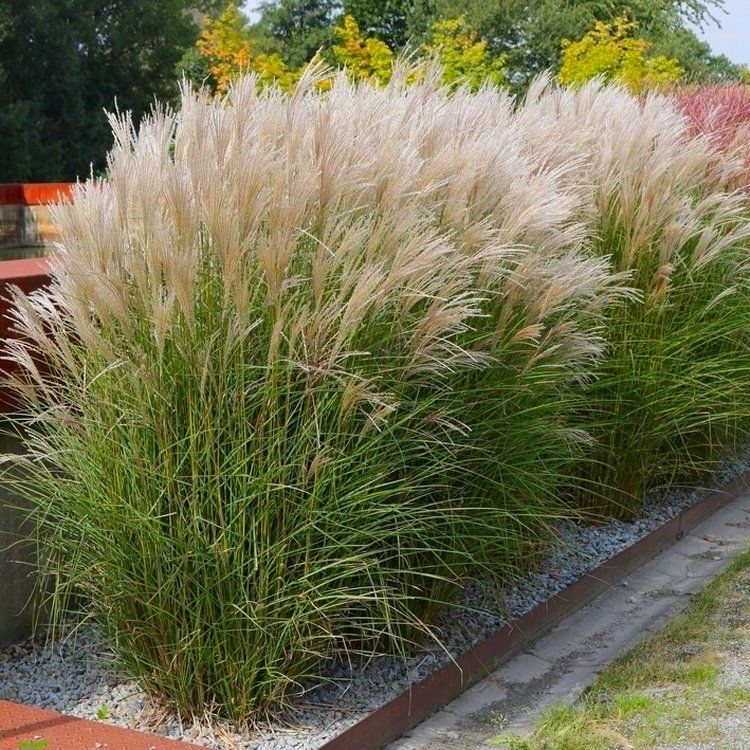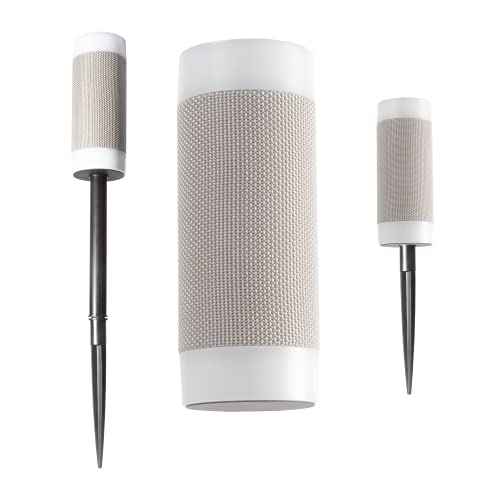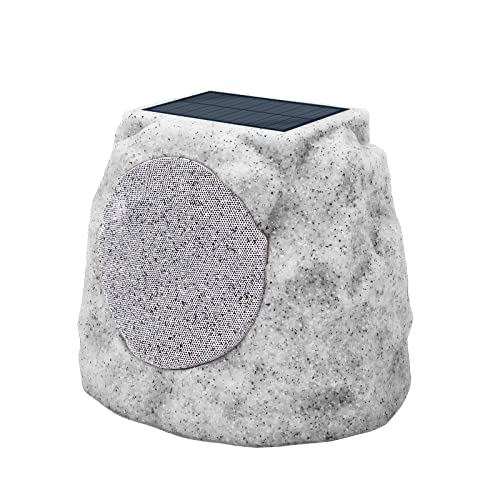How to soundscape a garden – 8 ways to create a peaceful sanctuary
Whether you're looking to mask noises from a neighbouring road or property or simply want to create some relaxing vibes, here's how...



It can be tricky to switch off and completely relax these days but there’s something so calming and peaceful about spending time in our garden. And a lot of that has to do with the natural sounds of nature.
You might not have considered the noises that occur naturally in your outdoor space, whether that be birds chirping or plants, leaves and grasses rustling in the wind. But they all contribute to that relaxing feeling and give us a chance to switch off and unwind.
Even though we engage all five of our senses, particularly if we’ve introduced some sensory garden ideas, sound can have an immediate effect on how we enjoy our outdoor space. I mean, you probably know how frustrating it can be if you live next door to noisy neighbours or can hear a busy road nearby. So, using sound isn’t just about adding, it’s also about using it as a buffer or to cover up noises that we don’t necessarily want to hear. And that leads us onto the practice of soundscaping.
What is a soundscape?
‘A soundscape is a combination of different sound textures that create the feeling of a ‘journey’ as you listen,’ explains Harriet Emily, Harrods’ Sound Healing and Meditation Practitioner. ‘Each sound can create a different emotional response, such as relaxation, joy, or peace. These emotional responses reconnect the body and mind to the present moment. And as you listen to each sound, you find yourself becoming more in tune with your surroundings and in harmony with the present.’
So, it’s no surprise that more and more of us are turning to soundscaping to create a serene escape. Which is why we spoke to the experts to get their top tips and advice for soundscaping your very own. Here’s how to plan a garden with sound in mind and why soundscaping might be something that you want to try out next.
1. Play with water
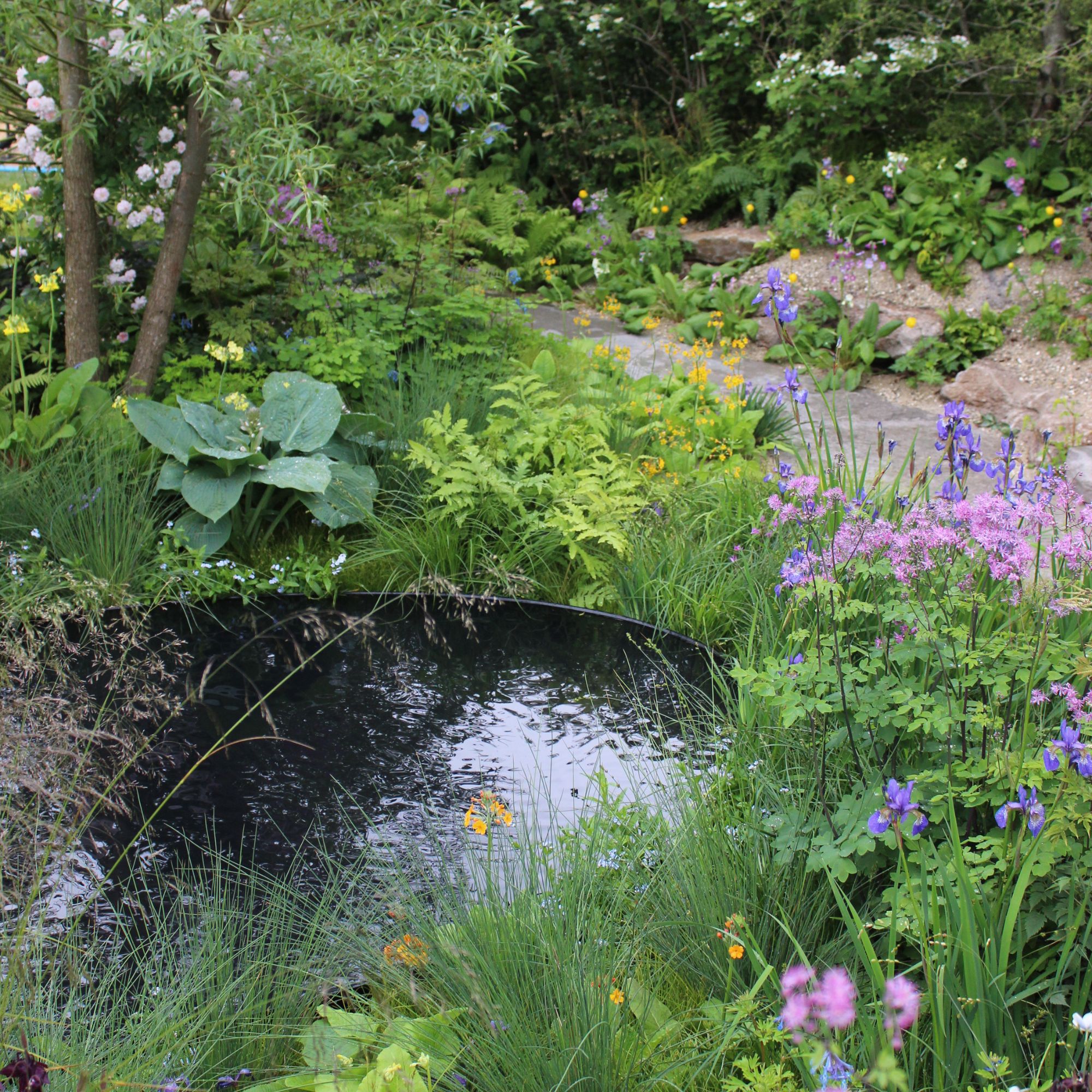
When you think about adding sound to your garden, we have a feeling one of the first ideas which will spring to mind is using a water feature. But there are actually a number of different ways to use water to soundscape your outdoor space.
You could add a fountain or a pond, depending on the size of your garden, or why not introduce a vertical cascade, bird bath or water source to make water a real feature. Whichever one you choose, there’s no denying how peaceful the sound of flowing water can be or how effectively it can mask outside noises.
Get the Ideal Home Newsletter
Sign up to our newsletter for style and decor inspiration, house makeovers, project advice and more.
2. Attract wildlife
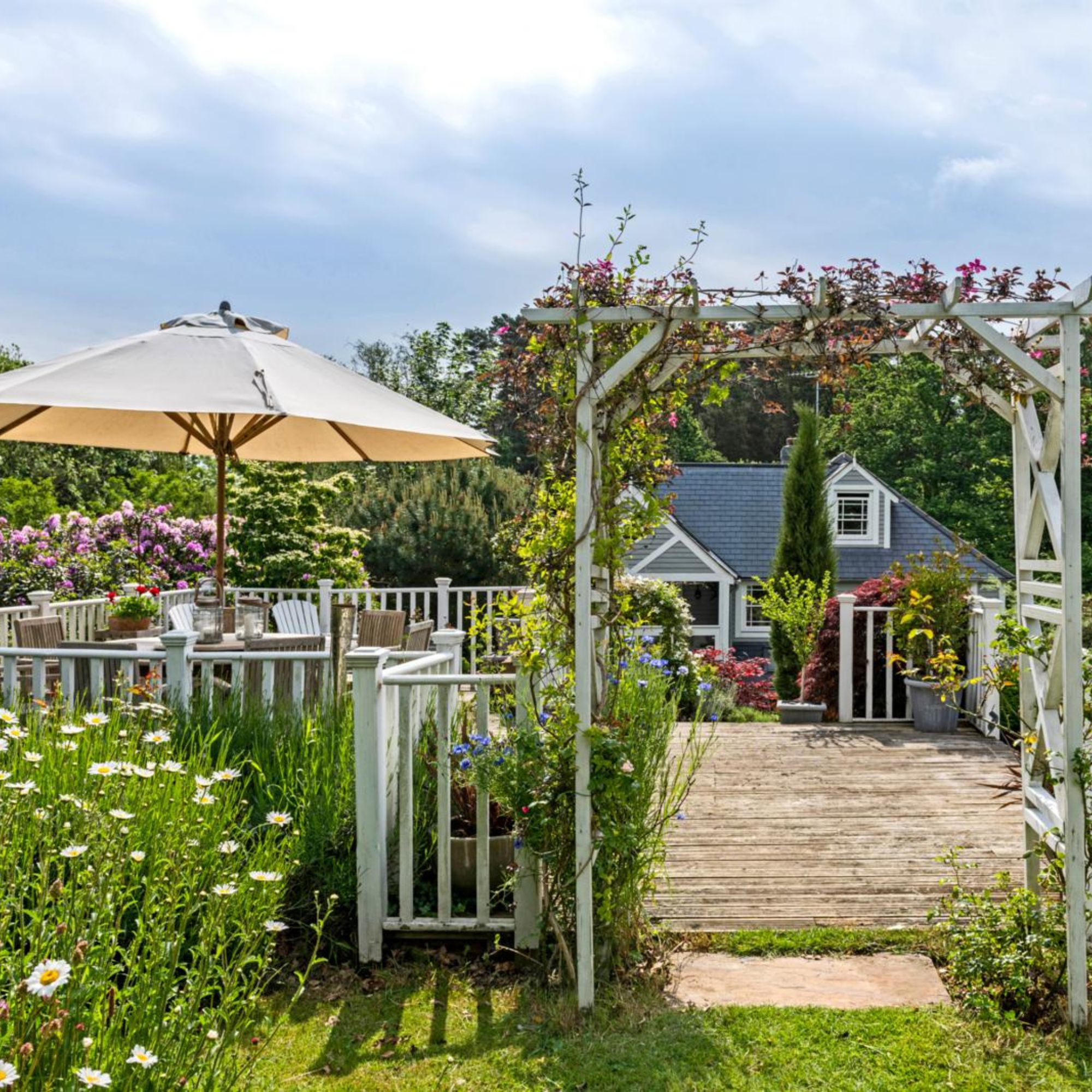
‘The hum and buzz of insects along with the chirping and song of birds is what brings a garden to life. So, it’s really important to provide food and habitats to attract wildlife,’ admits MyJobQuote’s Gardening Expert, Fiona Jenkins. And the experts all agree that this is one of the best ways to soundscape a garden.
Whether you choose to install some bird feeders or baths, design your garden will pollinator and bee friendly flowers and fauna in mind, you can even add ‘log piles and bark chippings to attract an array of insects that, in turn, bring blackbirds, thrushes and robins into your garden,’ Fiona reveals. If you happen to have a pond in your garden, however big or small it may be, you might even get to hear some frogs croaking.
3. Use the wind
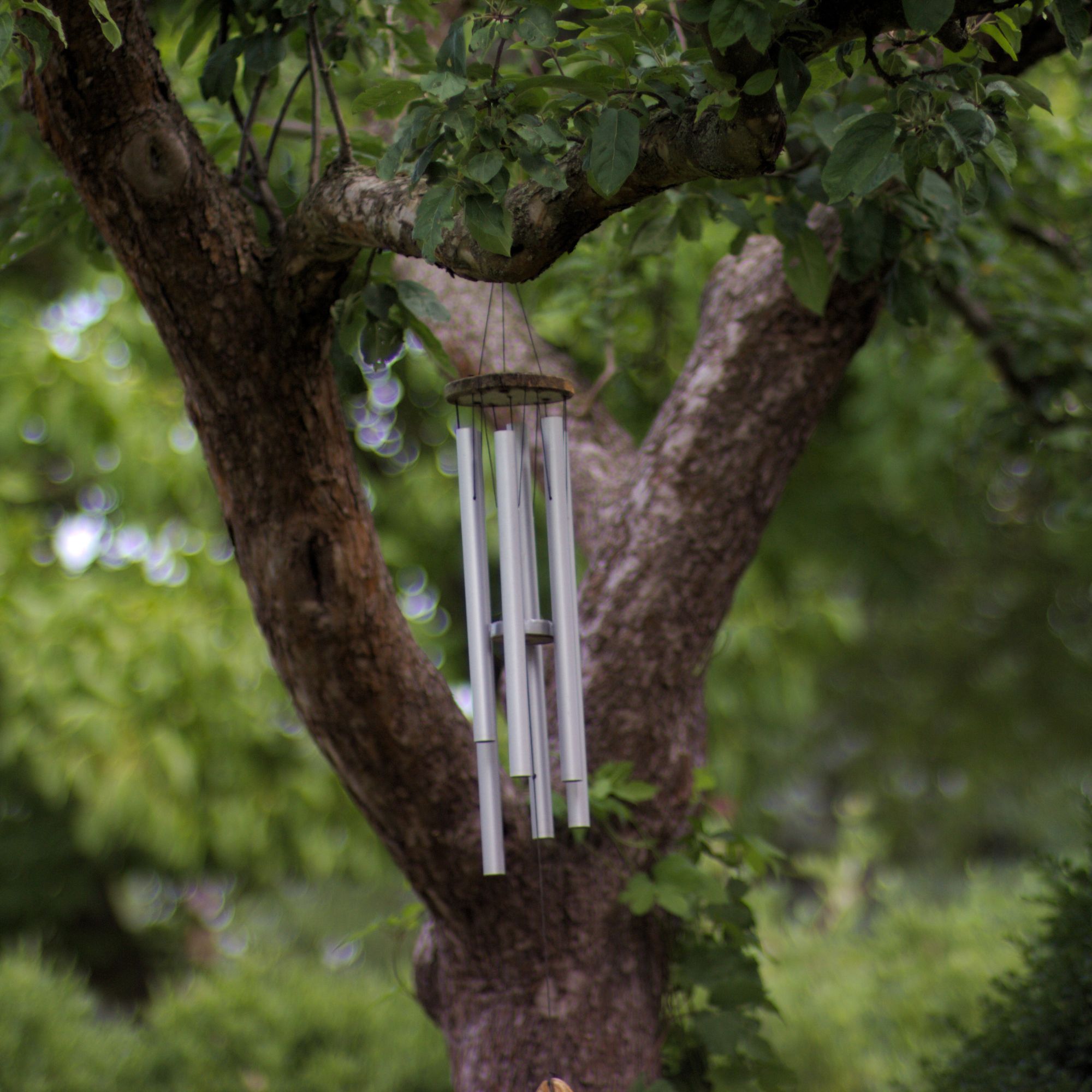
‘Soundscapes created by wind can be dynamic and ever-changing,’ says Jane Dobbs, Team Lead Gardening at Allan’s Gardeners. And while ‘wind does not usually make a noise until it passes through something or comes into contact with it. There are several ways you can take advantage of this in your garden, such as hanging wind chimes or growing ornamental grasses that will rustle in a breeze,’ LBS Horticulture’s Garden Expert, Graham Smith MClhort, agrees.
Not only do ornamental grasses and bamboo add texture and immediate impact to your garden but the swishing sound that they make as wind passes through them can be incredibly calming.
4. Capture the sound of rain
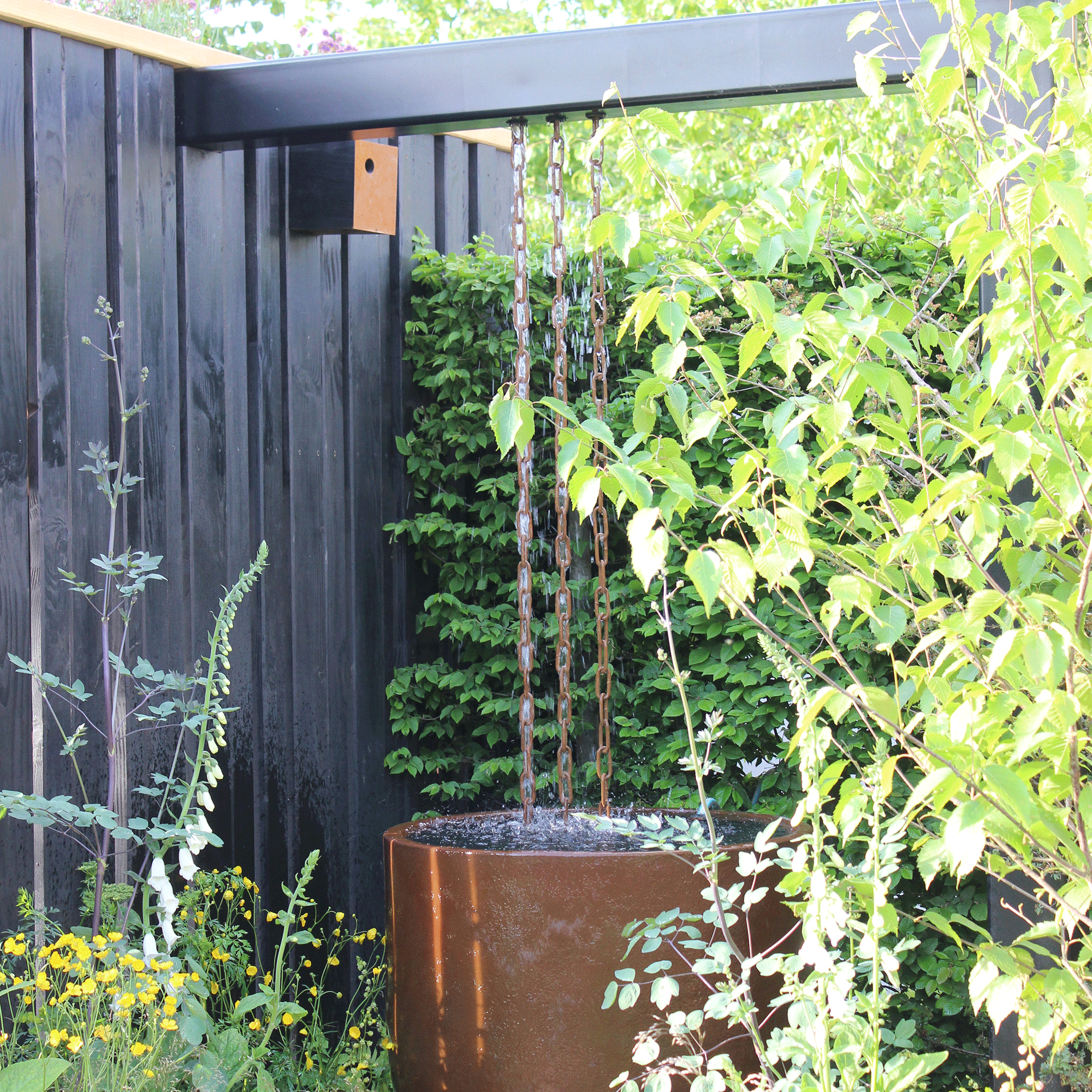
‘It’s not just the wind that you can harness for your garden soundscape,’ according to Fiona, ‘The rain can add a whole new dimension too. You can use the pitter-patter of droplets on different surfaces such as stone, glass, metal and water to create subtly soothing sounds while the addition of rain chains can add more interesting, melodic notes.’
And given how frequently it rains here in the UK, why not associate an unexpected rain shower with its beautiful sound, instead of how it can often disrupt our plans. You could even consider making your space into a rain garden, if you find the sound particularly calming.
5. Add textured footpaths
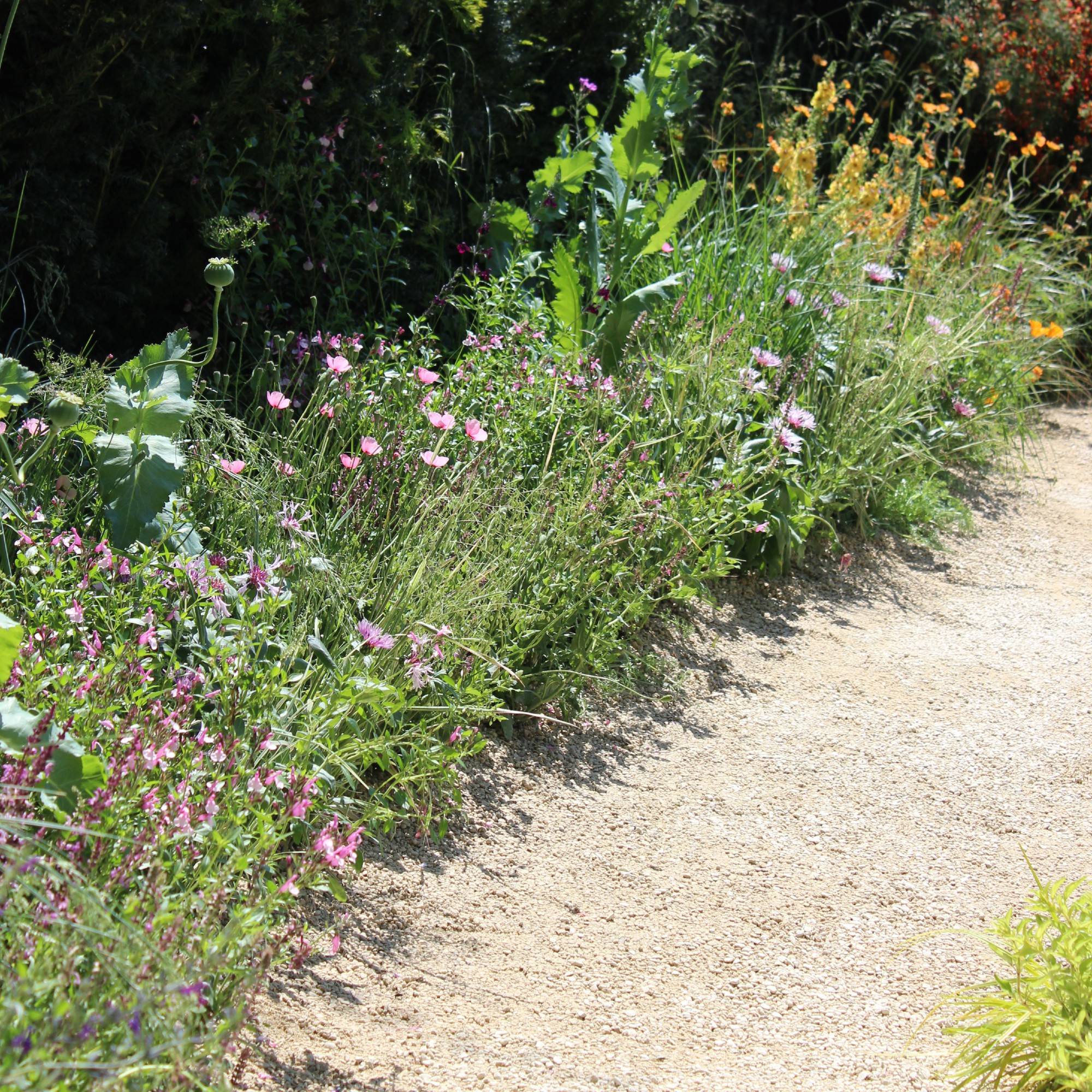
There’s something so satisfying about hearing the crunch of gravel or pebbles under our feet. Whether you’re in the process of designing your dream garden or are looking to create a few different zones to break up the space, ‘by adding a pebble or woodchip pathway, you can create a mindful walk in your garden that helps you step out of your mind and listen to the subtle sound of your footsteps on different textures,’ Harriet remarks.
Gravel, pebbles, woodchip, slate and shingles all work well and can be relatively inexpensive too.
6. Increase foliage
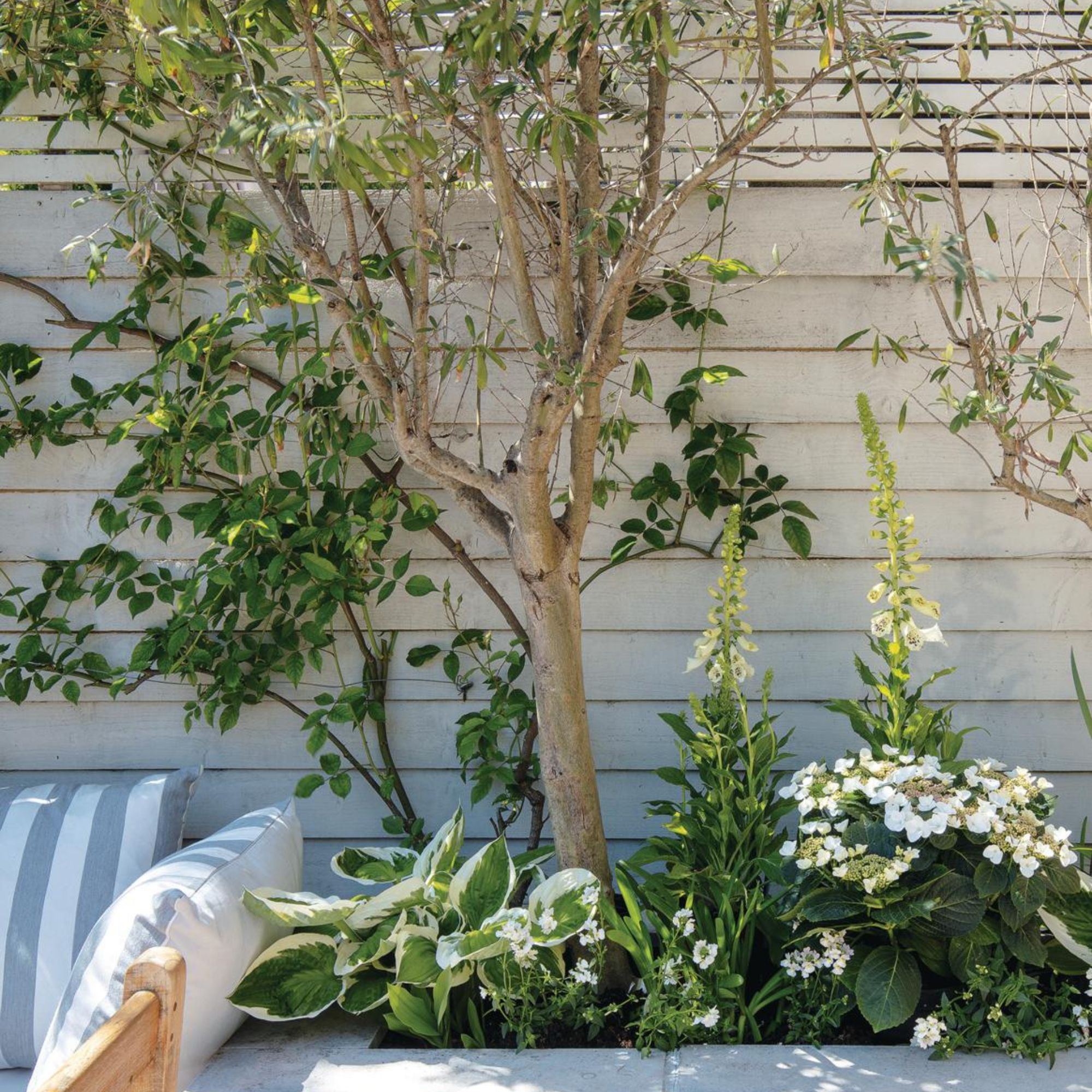
Even though you might not think of trees and plants making a great deal of noise, ‘not only do leafy trees and shrubs help to block out annoying noises but they can add to the natural soundscape,’ Fiona affirms. ‘The rustle of leaves in the wind and the crunch of dried leaves on the ground are two sounds that we find pleasing and help us connect closely with nature.’
Ideally, you’ll want to plant a mixture of evergreen and deciduous trees, if you can, so that there are trees all year round. Fiona recommends ‘eucalyptus, magnolia and strawberry trees combined with dogwood, Japanese maple and amelanchier trees,’ to help give you both.
7. Utilise a waterproof speaker
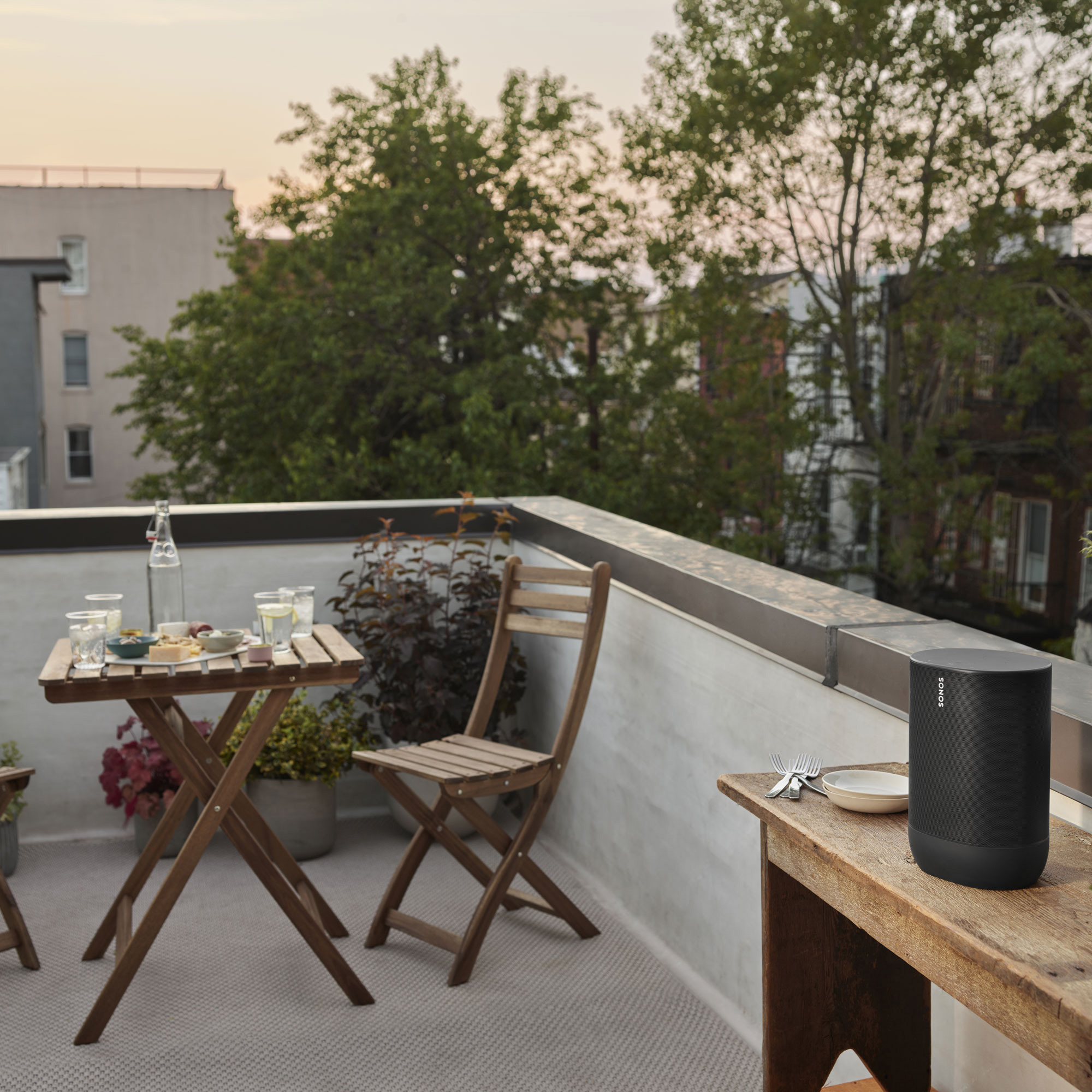
Particularly handy if you live in more of an urban neighbourhood or maybe you only have a patio or balcony as your outdoor space, setting up a speaker to play some of the calming sounds of nature can make a huge difference to the way you enjoy your space.
‘A weatherproof garden speaker is a perfect way to bring soothing sounds to your garden, especially if you are limited in space or can’t add a water feature,’ Harriet agrees. ‘By creating a nature sounds playlist, you can listen to the relaxing waves of the ocean, rivers or the crackling of fire to fill your garden with their calming sounds.’
8. Create a quiet zone
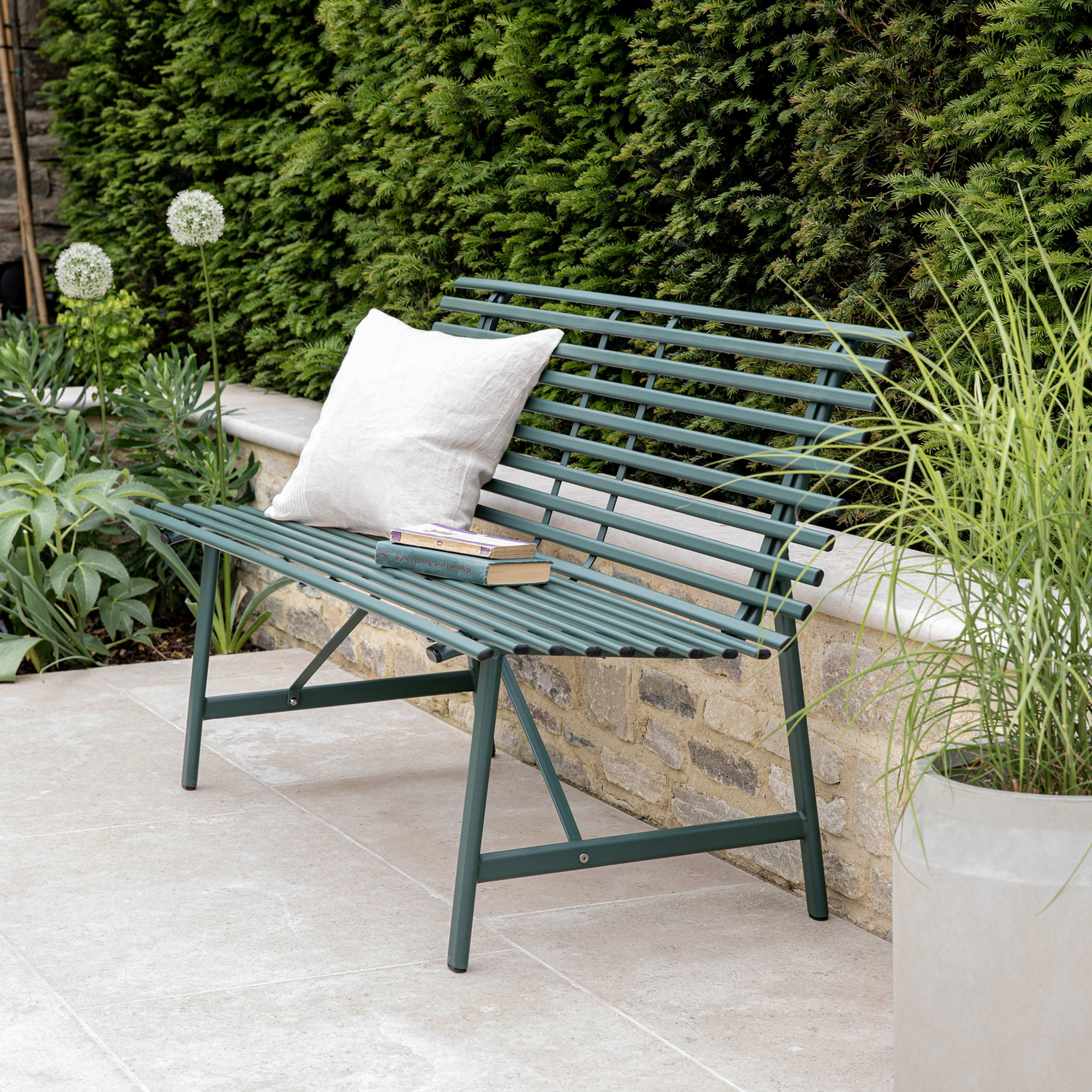
Even though all of these sounds make spending time out in your garden all the more pleasurable, it’s equally important to section off an area to become a bit of a quiet zone. ‘It's great to have quiet zones in your garden, so you can escape the noise,’ if you want to, Jane declares.
‘The Japanese practice of shinrin-yoku, or “forest-bathing”- the simple act of being calm and quiet amongst the trees, observing nature around us and taking deep breaths - has been shown in several studies to lower heart rates, blood pressure, and concentrations of cortisol,’ according to Dr Sophie Mort of Headspace. And thankfully we ‘don’t need to move to the countryside or drive several hours to the closest forest to experience these benefits - we can do this in urban green spaces too.’
FAQs
What are the benefits of soundscaping your garden?
Essentially, the biggest benefit is that it creates a garden that you’ll want to spend more time in. It might even prompt you to lean into more of your senses with your very own sensory garden, as well. And since ‘natural sounds are thought to lower stress levels and improve your mood,’ according to Graham, you should feel more peaceful and relaxed while you connect with nature.
And ‘by introducing water features, trees and bird feeders you also create a safe space for nature and wildlife to co-exist,’ Harriet concludes.
How do I best block out noise from neighbours or a busy road in my garden?
It can be rather frustrating when you go to sit out in your garden only for you to hear the noise from a busy road or your next door neighbours. And a number of the tips above will help to lessen and mask these sounds. For example, the addition of a water feature, can be like night and day for helping to cover up undesirable sounds.
However, when it comes to how to soundproof a garden, you might want to consider moving or placing outdoor seating areas as far away from the noise as you can or even using tall hedges, walls or fences to help block the sound.

Ellis Cochrane has been a Freelance Contributor for Ideal Home since 2023. Ellis has been writing about homes, interiors and gardens for four years now, with her also contributing to House Beautiful, Country Living, Expert Reviews, Real Homes and Stylist.
-
 Will a conservatory add value to your home and how can you maximise it?
Will a conservatory add value to your home and how can you maximise it?This is what the pros say
By Amy Reeves
-
 I’ve been looking for a new signature scent for my home and The White Company's new fragrance is the exact summer holiday smell I needed
I’ve been looking for a new signature scent for my home and The White Company's new fragrance is the exact summer holiday smell I neededSantorini smells fresh, summery and sophisticated
By Kezia Reynolds
-
 How to remove algae from garden walls in five steps – and the cleaning product experts rave about for tackling it fast
How to remove algae from garden walls in five steps – and the cleaning product experts rave about for tackling it fastExperts share their top tips for getting garden walls algae-free
By Katie Sims
-
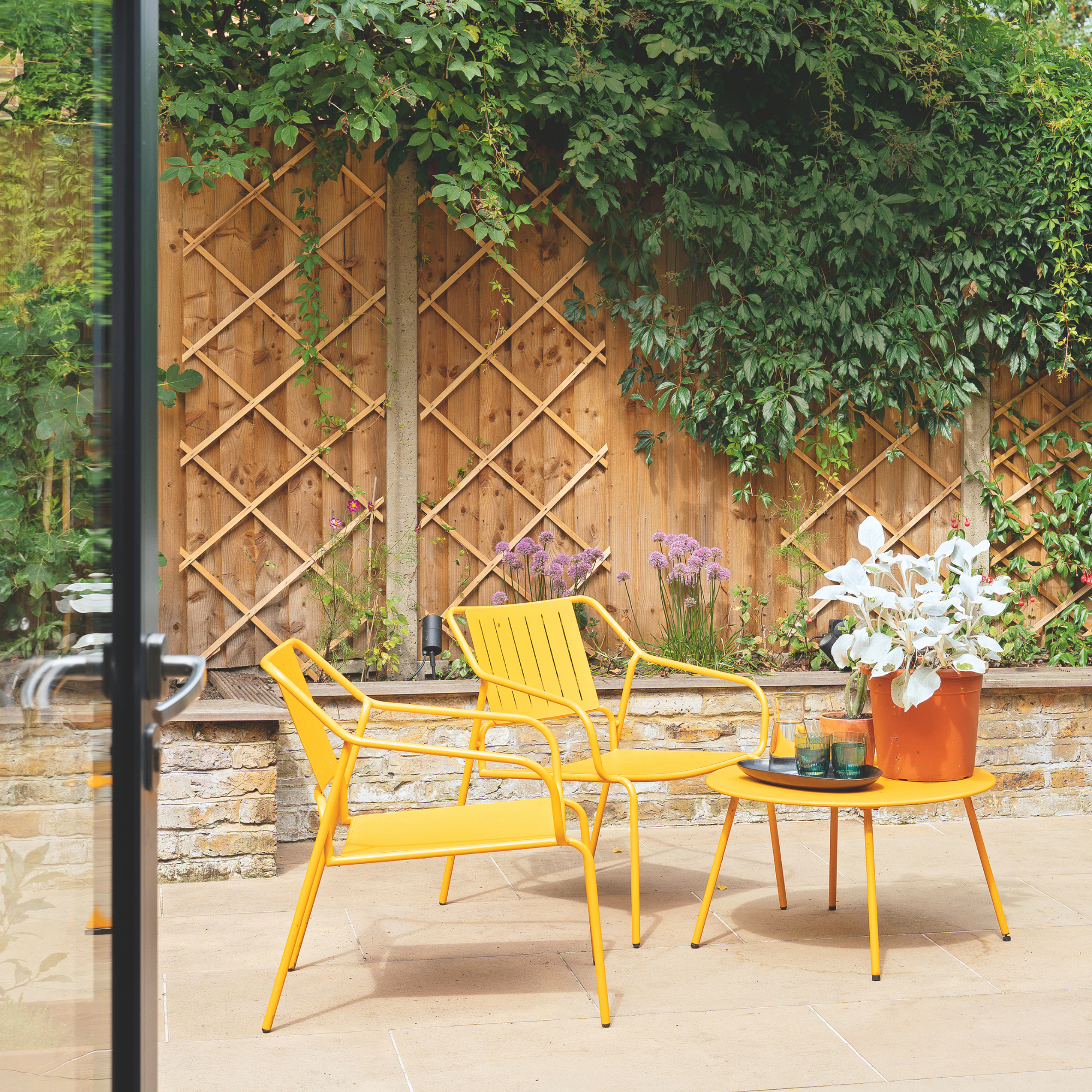 I’m seeing pastel garden furniture at all my favourite brands this spring, but QVC’s sorbet collection impressed me the most
I’m seeing pastel garden furniture at all my favourite brands this spring, but QVC’s sorbet collection impressed me the mostFresh pastel shades are a great way to liven up your outdoor space
By Kezia Reynolds
-
 I spent the afternoon looking through Wayfair's garden sale – these are the 6 pieces I'm buying immediately for summer
I spent the afternoon looking through Wayfair's garden sale – these are the 6 pieces I'm buying immediately for summerThese are my must-have garden buys from the sale
By Holly Reaney
-
 I’ve found the perfect alternative to John Lewis’ sold-out striped garden chair – and you won’t believe where it's from
I’ve found the perfect alternative to John Lewis’ sold-out striped garden chair – and you won’t believe where it's fromJohn Lewis' Sling Garden Chair is one of the most stylish pieces of garden furniture I'd seen – until I tracked down this QVC lounge chair...
By Kezia Reynolds
-
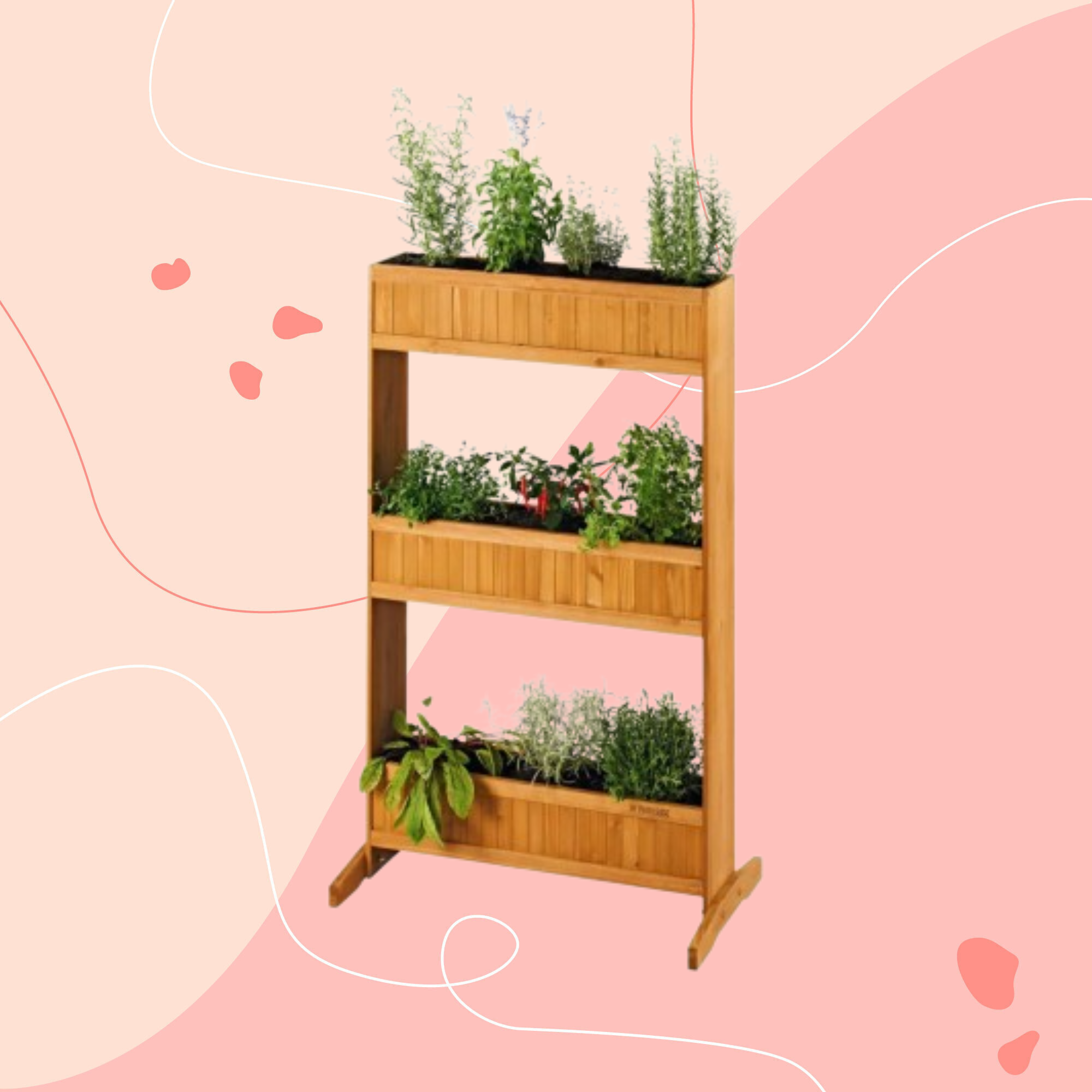 Lidl is selling a smart tiered planter that will unlock extra planting space in a tiny garden or balcony
Lidl is selling a smart tiered planter that will unlock extra planting space in a tiny garden or balconyWhy I've been eyeing this planter up for my tiny garden
By Kezia Reynolds
-
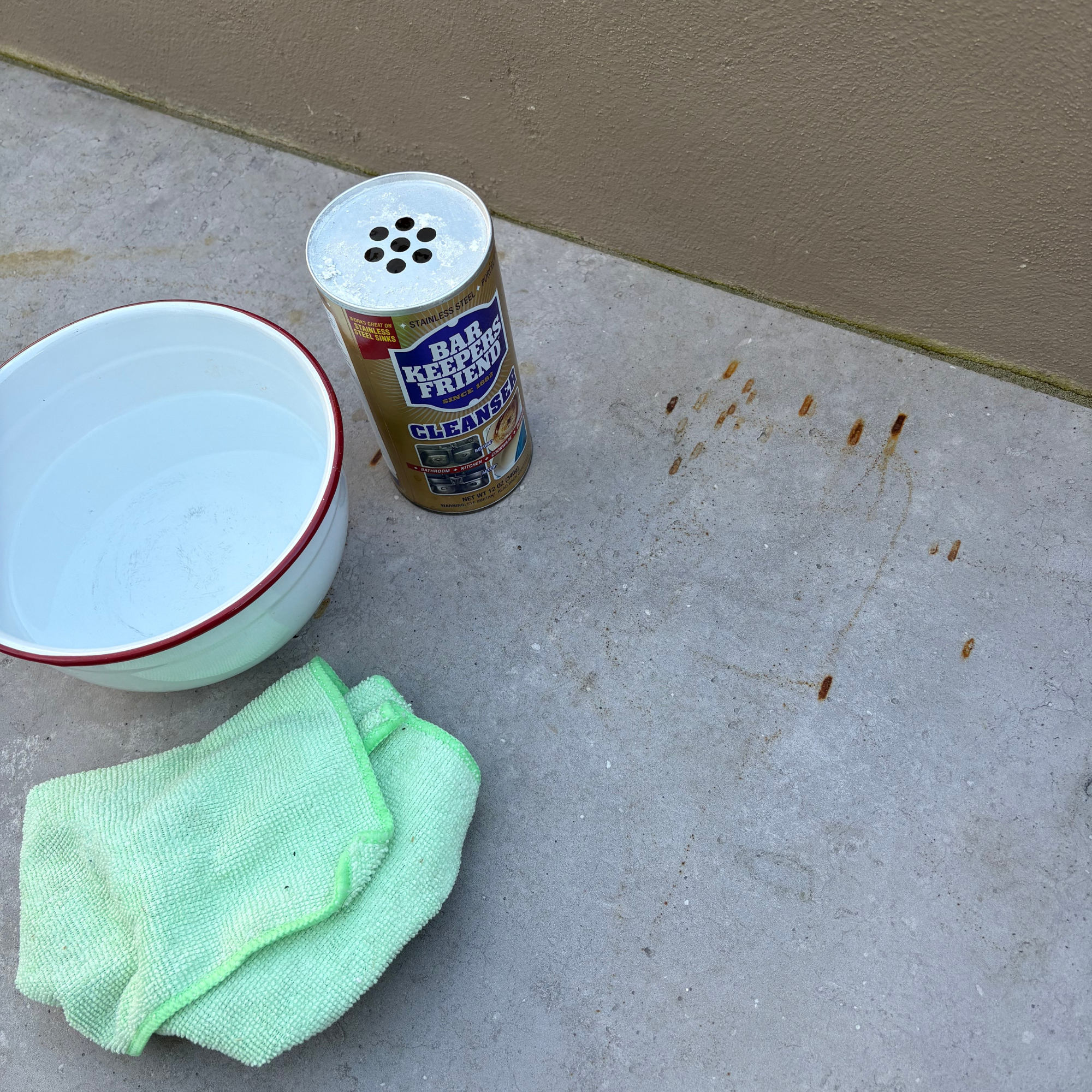 I’ve found the best solution for cleaning stains from a patio - and it’s only £8 on Amazon
I’ve found the best solution for cleaning stains from a patio - and it’s only £8 on AmazonThe stains practically vanish!
By Kezia Reynolds
-
 Lidl’s £15 sun sail is everything you need to create a shady oasis in your garden – and it’s on sale right now
Lidl’s £15 sun sail is everything you need to create a shady oasis in your garden – and it’s on sale right nowWith two stylish colours available, the sun sail will make a chic yet practical addition to any of your garden.
By Kezia Reynolds
-
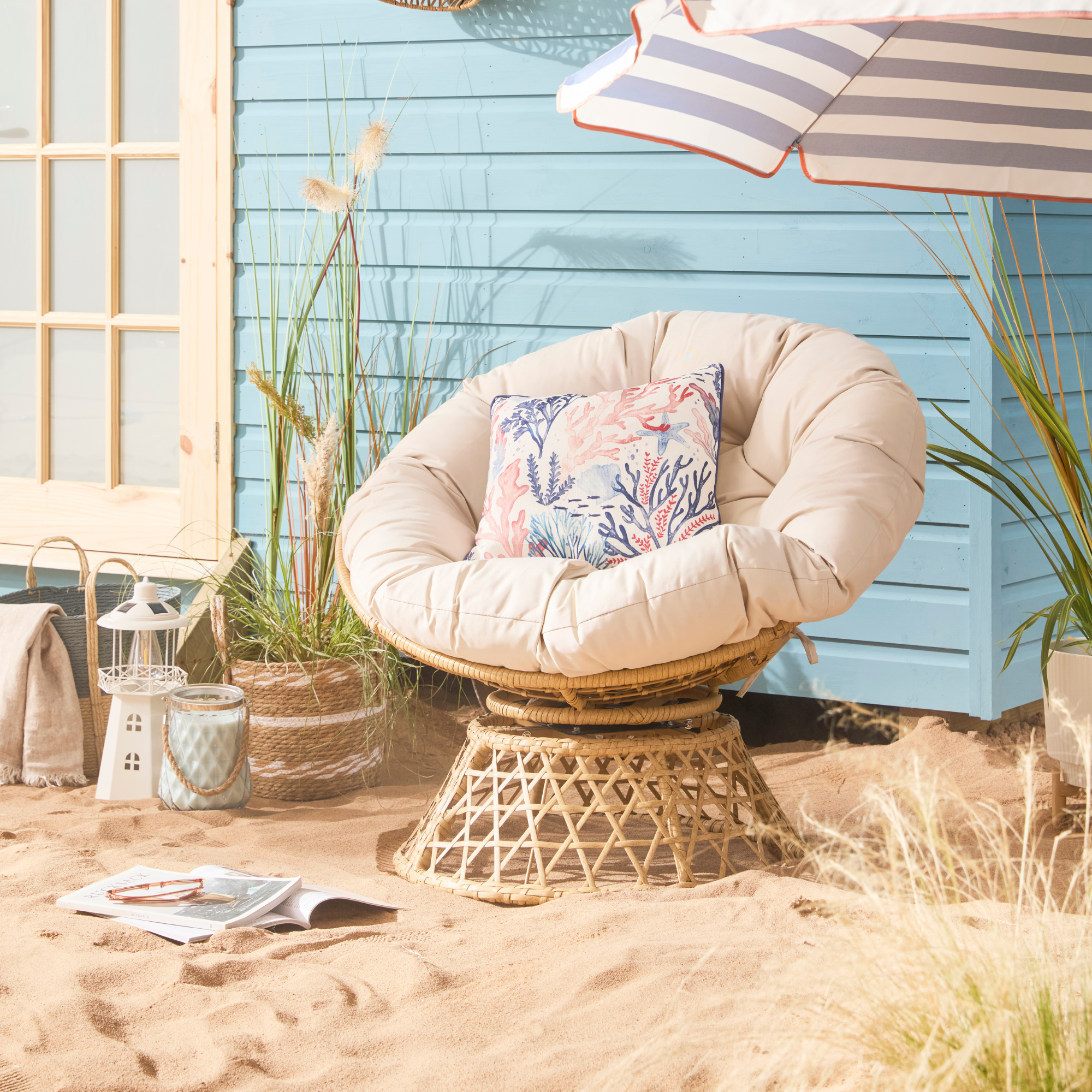 B&M has nailed 2025's breakout garden furniture trend - it's one of the most affordable and stylish I've seen
B&M has nailed 2025's breakout garden furniture trend - it's one of the most affordable and stylish I've seenGet the luxe look for less
By Kezia Reynolds
-
 I was shocked to discover a treasure-trove of designer-look garden furniture at La Redoute on sale right now – 6 chic standouts
I was shocked to discover a treasure-trove of designer-look garden furniture at La Redoute on sale right now – 6 chic standoutsGive your garden that high-end look
By Sara Hesikova
